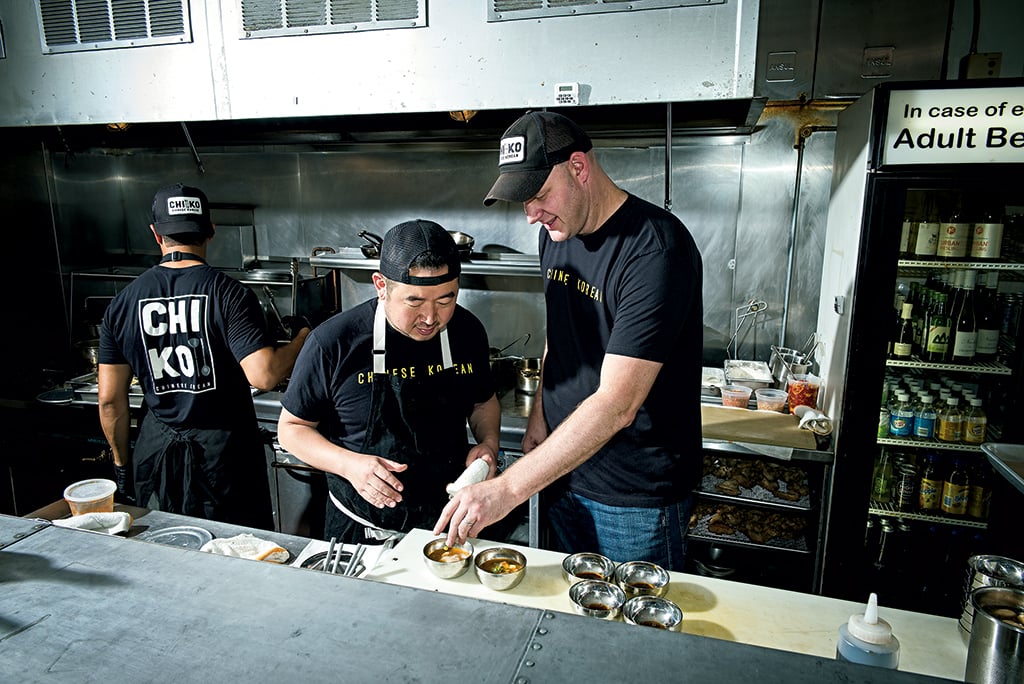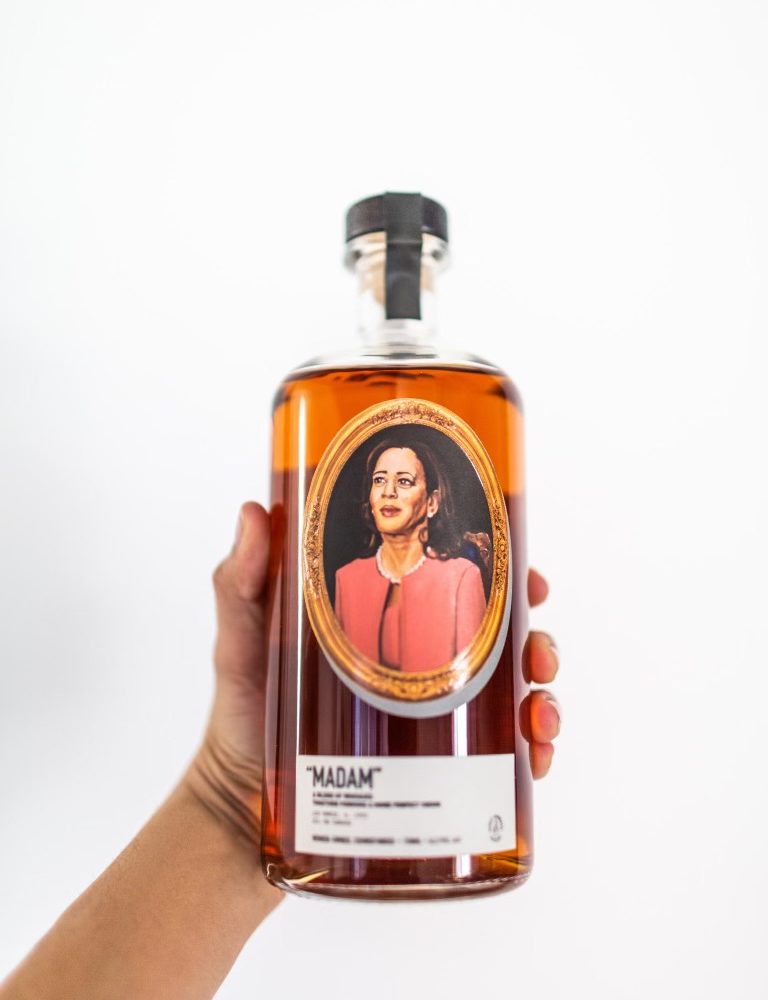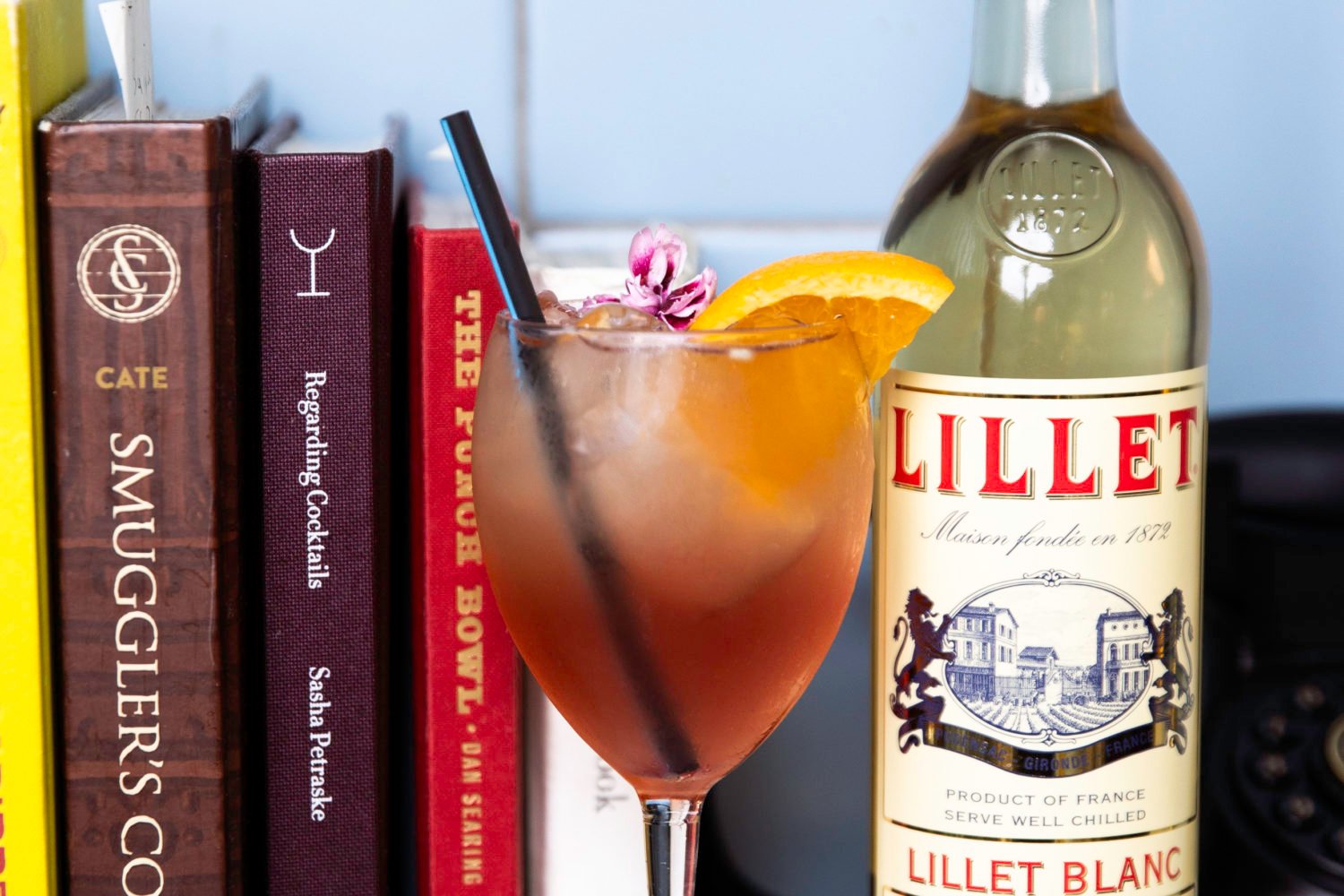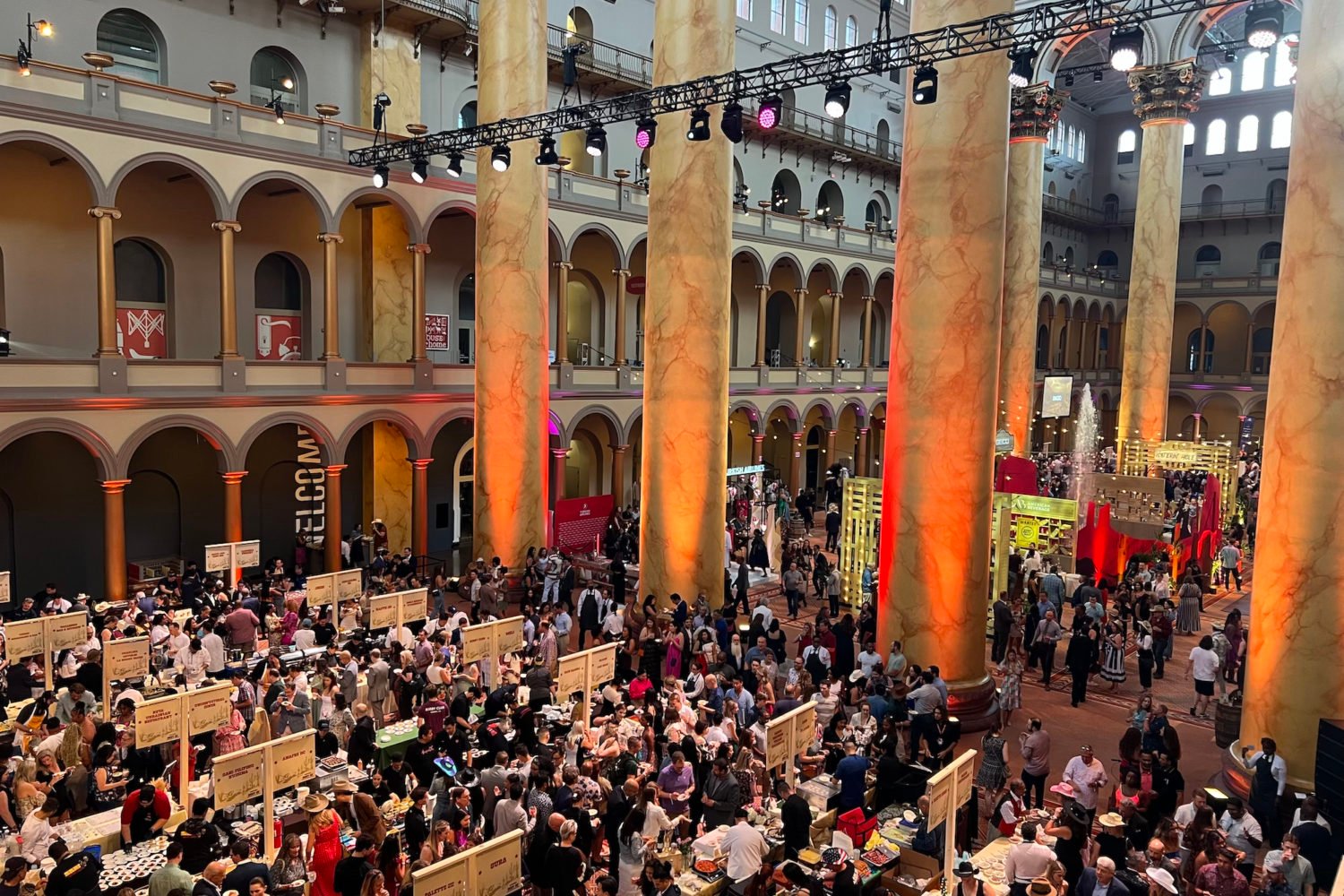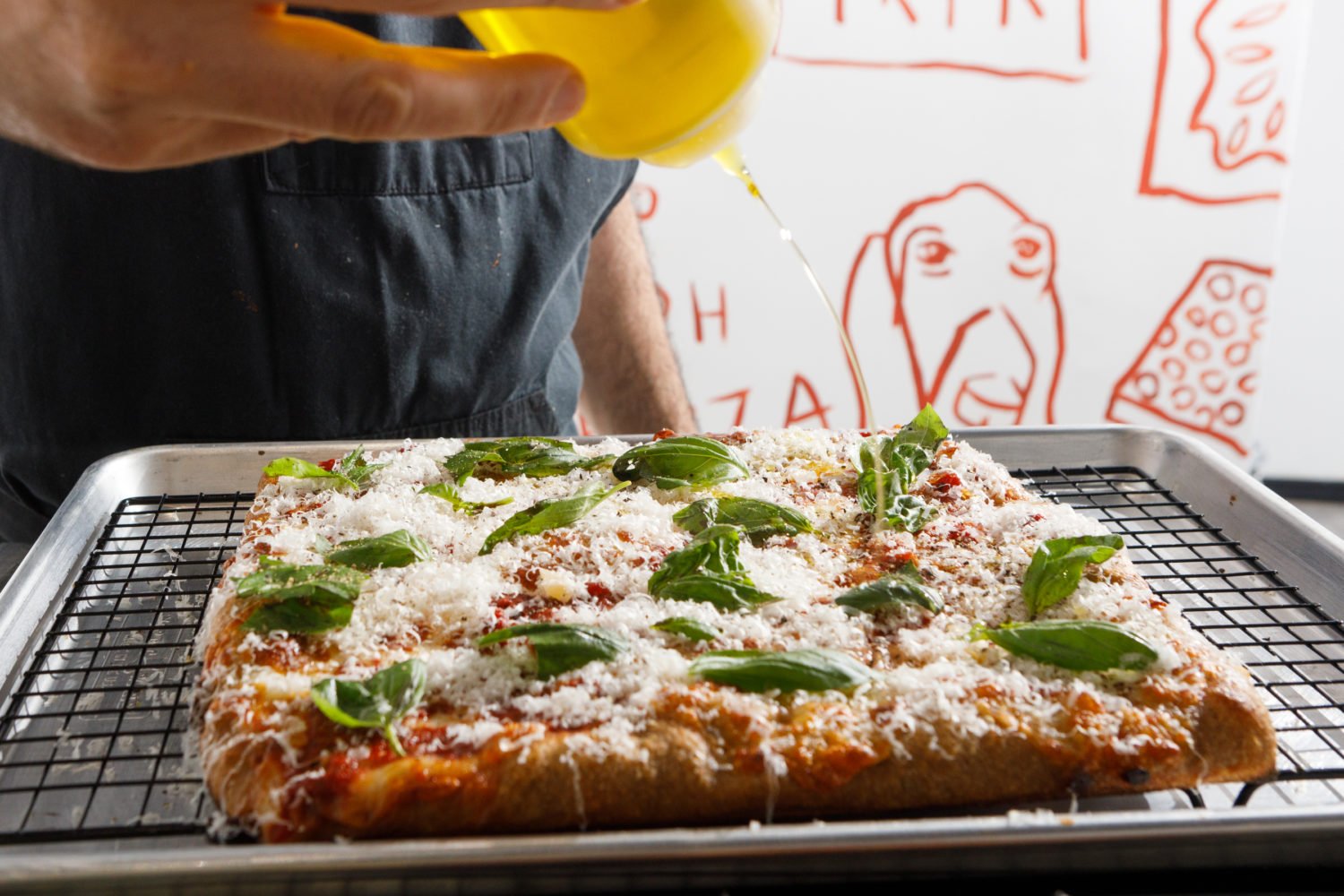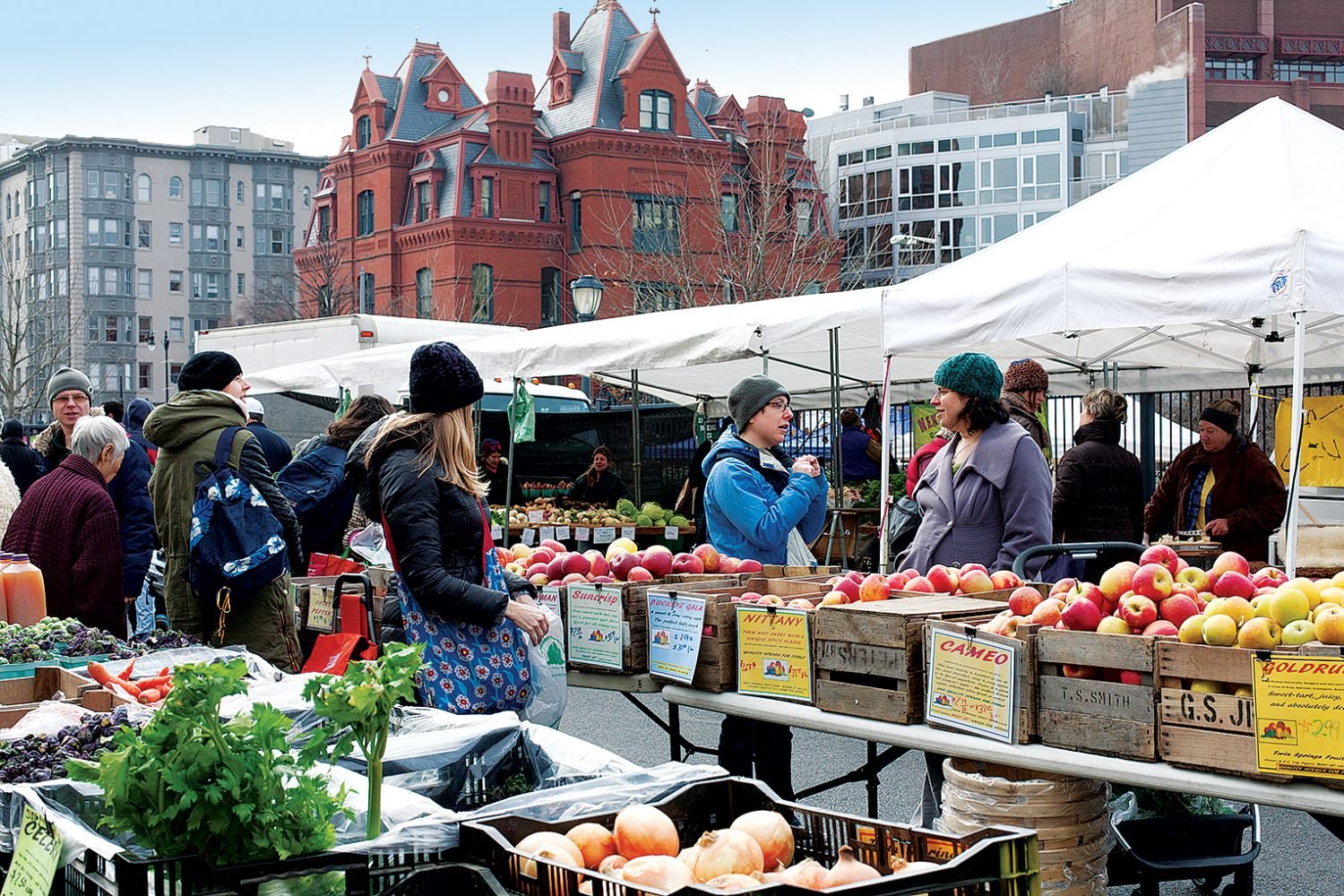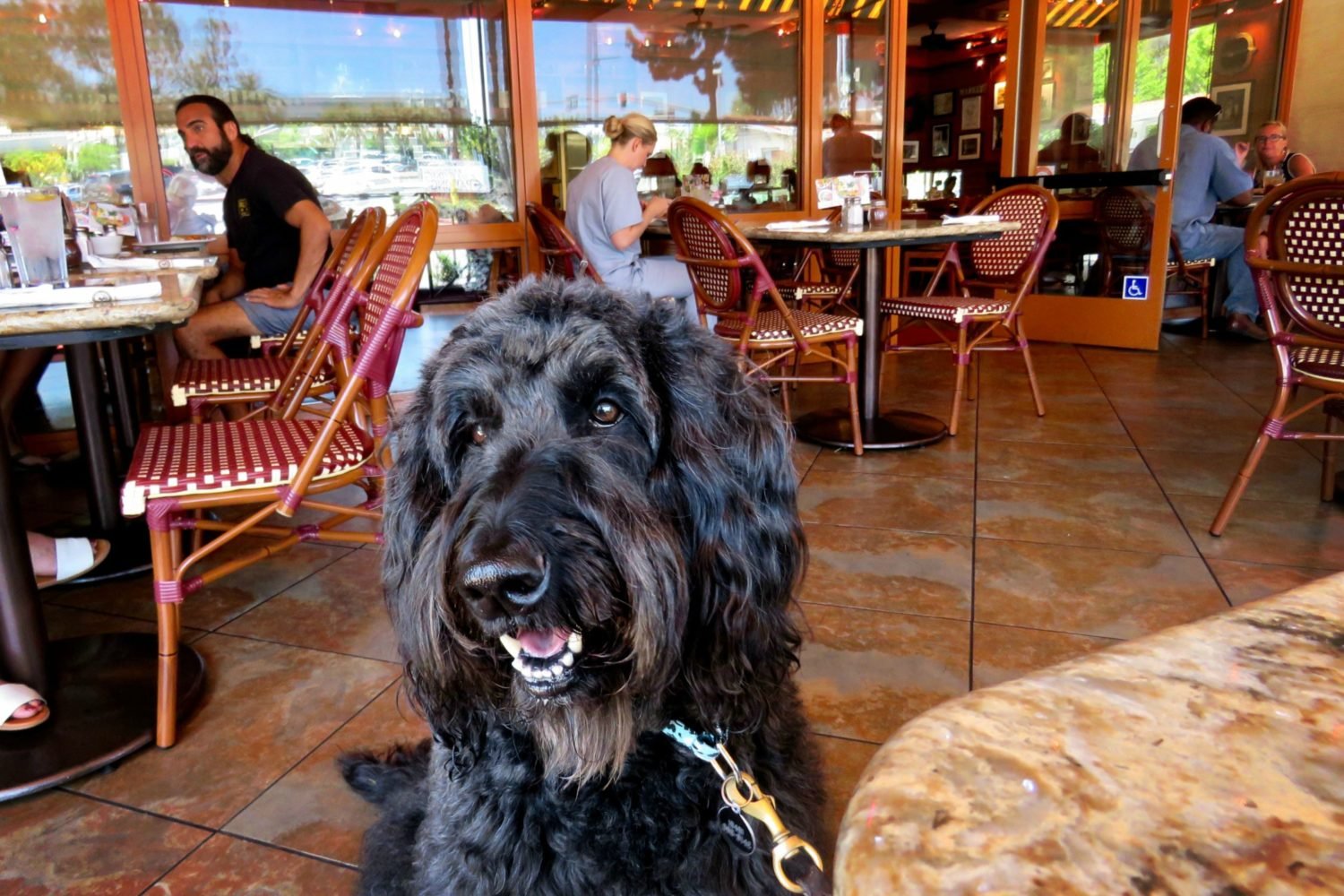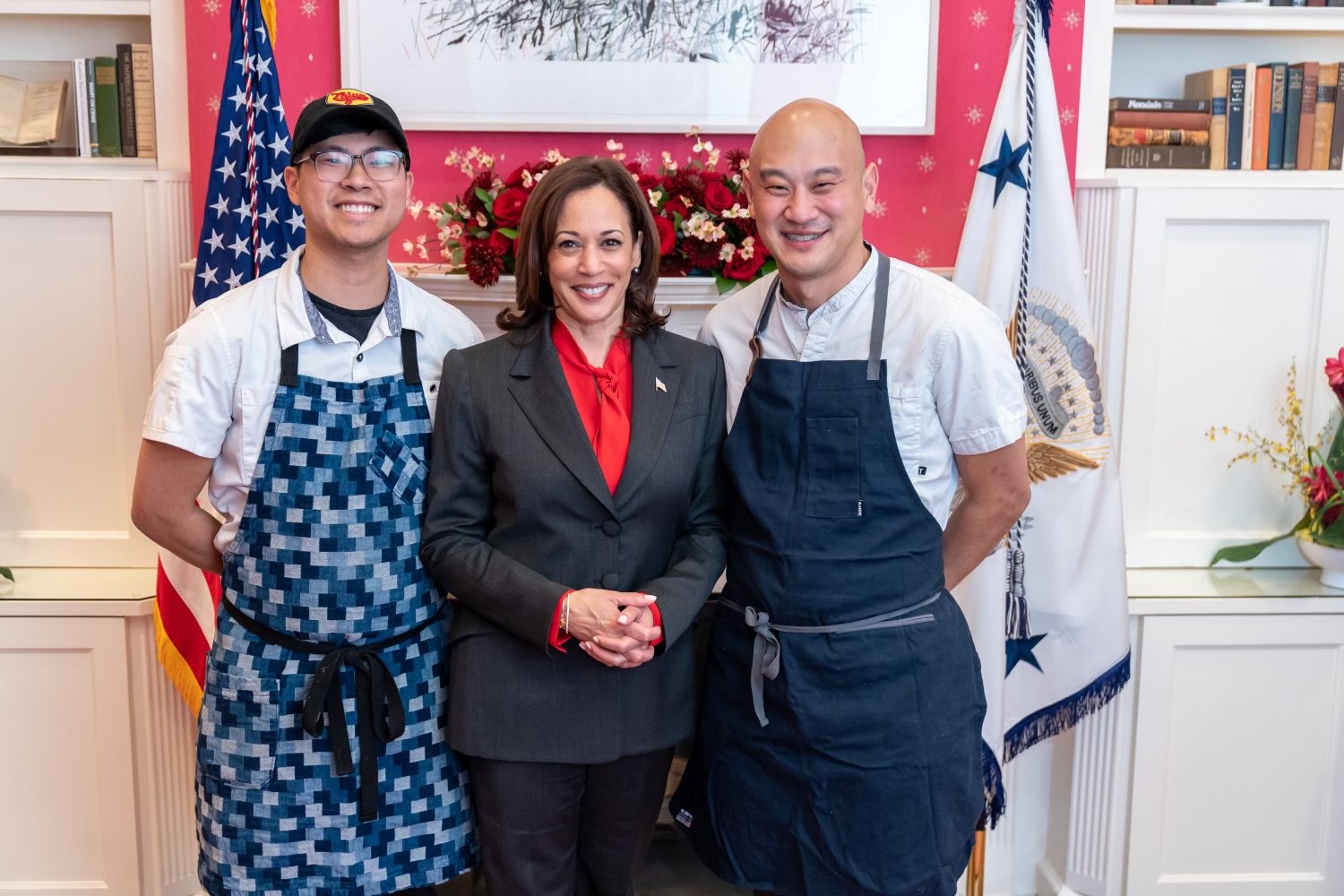About Restaurant Openings Around DC
A guide to the newest places to eat and drink.
Days before chefs Danny Lee and Scott Drewno opened Chiko last summer, the Lee family’s 11-year-old Korean restaurant Mandu burned in an electrical fire. The original 18th Street location has remained closed since, as Lee and his mom Yesoon Lee have dealt with the damage and tried to decide whether to shut down or rebuild. (Another K Street branch remains open.)
Ultimately, they decided to stay. Along with Fried Rice Collective (the restaurant group started by Lee, Drewno, and Matchbox co-founder Drew Kim), they’re transforming the space into something new: Anju, a Korean pub with grilled meats, fun snacks, and plenty of soju.
If the name sounds familiar, that’s because the Lees hosted a late-night Anju pop-up series in 2014 with a rotating cast of top chefs serving Korean-fusion drinking snacks. The name literally translates to “food consumed with alcohol,” Lee says. But it also connotes places where you can find fun drinking food in a lively atmosphere. “You’re not held down to being the most traditional restaurant,” he explains.
The first floor—for walk-ins only—will have an expanded bar with cocktails made with rice wine makgeolli, Korean beers, and unusual soju infusions. (In the past, they’ve played with watermelon-feta and corn-leek-infused soju.) Counter seats will peer into an open kitchen with a wood-fired Grillworks grill for Korean barbecue. The space isn’t conducive to self-service tabletop grills (sorry), but the chefs say their setup will impart more smoky flavor on the barbecue.
A wide variety of grilled meats (chicken, beef, pork, fish) and veggies will be offered in smaller portions, so diners can mix and match. “If you go to a typical Korean barbecue restaurant, you’re limited by portion and price of the variety you can order,” Lee explains. The proteins will pair with panchan (like kimchi and other small seasonal sides), which diners can choose from a lengthy list of options. Otherwise, diners will have to order panchan a la carte.
Anju will still have a couple of Mandu classics, such as bibimbap and jjigae stews. But expect most of the menu to stray from tradition. Lee and Drewno have more than 100 dishes they’re trying to whittle down, but bar snacks will likely include bulgogi-seasoned beef jerky and “tornado potatoes” (spiraled spuds on skewers).
The upstairs dining room will be dedicated to reservations and private events. But the main attraction will be two round six-top tables that diners can book in advance for a special fixed-price feast. The tasting will include an onslaught of panchan and some smaller shareable dishes, culminating with jeongol, a Korean-style hot pot or casserole bubbling on a tabletop burner. Groups will be able to pick from a few different seasonal jeongol options, and everything leading up will be customized around it. The chefs are also working some special rice dishes to accompany the stews.
“There’s some restaurants that have been doing this for decades where you can’t just get steamed rice, you get whatever rice they think is good, that pairs well with their food,” Lee says.
Unlike the Anju pop-ups, the restaurant won’t center around guest chefs and fusion dishes. But Lee and Drewno aren’t ruling out some collaborative projects here and there. “Anything we do, that just naturally happens,” Lee says. The place will be open for dinner, and eventually, brunch.
Lee’s wife, Natalie Park, is behind the design. She’s trying to preserve as much of the original brick and bare wood rafters as possible and adding tons of greenery planted in ongii, kimchi fermentation pots. Mandu’s original art from Lee’s aunt was destroyed in the fire, but Park is working with her to create new pieces for display.
The team is hoping to open by January of 2019, just over a dozen years after Mandu first opened. In many ways, they knew they had to keep the space. After all, Park and Lee met at the restaurant, where she was one of his first regulars.
“This is a personal project for all of us,” Lee says.
Anju. 1805 18th St., NW.

